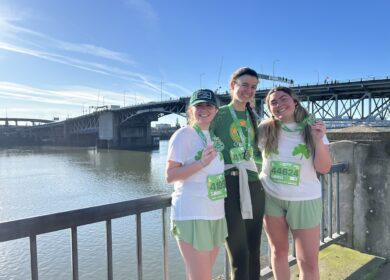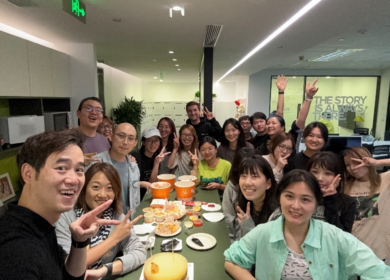By Tom McHale
The Hoffman Agency, Beijing
For business reporters accustomed to interviewing CEOs and marketing managers, sitting down with a scientist can be disconcerting. PR executives, by the way, often don’t fare much better when it’s a scientist on the client side of the conference room table. At times, conversation with a scientist can feel more like an exercise in translation than a business Q&A.
In my 20 years as a journalist, I always prepared for the worst, especially as these encounters often ended in an avalanche of data and with references to studies I had neither the time nor interest to find. Worse, I sometimes found myself facing scarcely concealed hostility from scientists who felt that the meeting was a waste of time. When you think about it, however, that hostility should not be surprising.
Scientists, like many engineers and researchers, inhabit a narrow field of study and talk—for the most part—with colleagues in similar disciplines. Even if they teach at a university, they may be more accustomed to lecturing than conversing. The reporter is often viewed as an outsider; one who threatens to misinterpret the researcher’s prized work to the public.
Like most interviews, conversations with scientists are a bit of a fishing expedition. It’s best to allocate extra time for the meeting if possible. Give them line to let them run with their thoughts and exercise patience in letting them explain themselves. With some room to stretch out in the conversation, and a few warm up questions, the reporter may discover a spellbinding human story—anything from how the researcher landed in that particular field, to how unintended results of one study led to a breakthrough in another.
Take my recent conversation with a Bell Labs researcher.
The interview was going nowhere. He answered questions with descriptions of development projects that seemed drab, grey and lifeless. While I struggled not to just say, “Thanks” and “Goodbye,” the researcher suddenly surprised me:
“You all know how we got the idea for lightRadio, right?” No, in fact I had no idea.
That’s when he told a compelling story.
One Friday, the head of his group—a woodworker by hobby—left the lab deep in thought about a new wireless technology design that could create smaller cell areas. Monday he returned with a block of wood the size of a Rubik’s cube and a challenge: the block of wood would be the new form factor for the small cell design that would encompass both basestation and antenna. The challenge was eventually met and lightRadio unveiled this year.
The story shows that sometimes the best content emerges when one is given the chance to relax. This was true for the woodworker in the story, and it is true for scientists during an interview. Still, journalists and PR pros can do their part to help scientists relax by following these three interview tips:
- Do your homework. Learn as much as possible about the person being interviewed because it will set the tone for the conversation.
- Explain your aims. Be explicit about what you want to talk about. Explain the need to describe cost benefits for customers, product differentiation and launch dates.
- Keep digging. Dig for the human backstory that details challenges faced, initial failures, problems solved and team interaction.
Scientists are human beings, after all; they are deeply involved in their work and proud of their accomplishments. By doing your part to learn about their world, you will not only put them at ease, but also show them that (even though you’re not a scientist) you are in fact doing a job that is important for their work.
Image via ingeniarius


